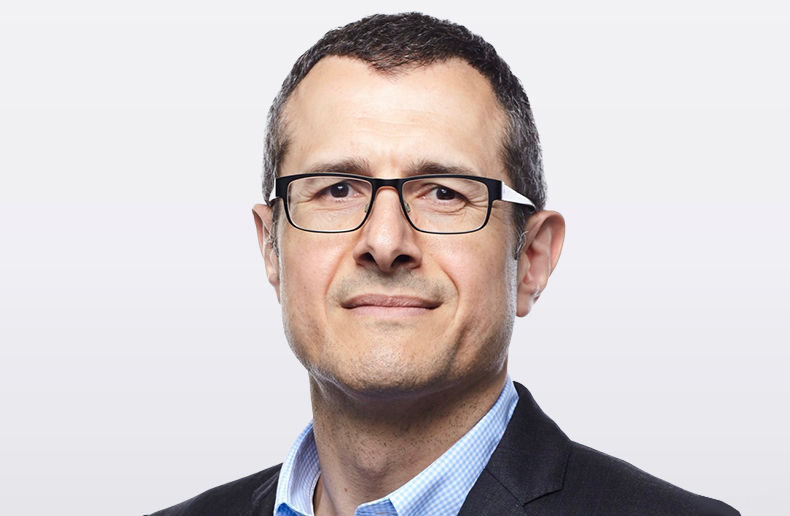Bernard Letendre now holds global responsibilities at Manulife. Since Jan. 1, he has been serving as Global Head of Strategy and Product for Manulife Global Wealth and Asset Management.
Currently Global Head of Investment Product at Manulife Investment Management, Leo Zerilli is the new Head of Manulife Investment Management Canada, a position previously held by Bernard Letendre.
Letendre assumes the dual role of Global Strategy and Global Investment Product Leader. Both he and Zerilli will report to Paul Lorentz, President and Chief Executive Officer, Global Wealth and Asset Management.
Bernard Letendre told the Insurance Portal that he will continue to operate in the same areas of individual and group investment funds, including mutual funds, group pension plans and exchange-traded funds.
An exciting challenge
Letendre has long aspired to become more involved in Manulife's global investment operations. The insurer is present in North America, Europe and Asia. "It's an exciting challenge to move into a global role after an extensive career in Canada,” he says.
Letendre began his career in the industry in 1995 with Investors Group. He later moved on to Standard Life followed by BMO Private Bank, before holding a series of key positions in wealth and asset management and private banking at Manulife starting in 2009.
Manulife’s reshuffling of its executive team reflects its strategy of giving resources opportunities to acquire new knowledge and skills, Letendre says. Manulife is also striving to maintain interest among staff by encouraging people to take on new roles.
Interviewed just days into his new role, he had few specifics to share regarding his goals. "I'm very familiar with the Canadian side of our business, but I have to be humble and learn from practices in Europe, Asia and the United States, along with their teams and clients.”
COVID-19 has changed attitudes
He thinks the pandemic has galvanized the digitization of operations across Manulife's business lines. "We have been engaged in this process for many years. The pandemic has changed a lot; we have made years of progress in less than a year. Starting from the early days of the pandemic, we had to very quickly develop new ways to meet with customers and update their financial plans.”
People’s attitudes have also changed, Letendre continues. "Mentalities have evolved among individual and institutional clients alike: everyone is ready to do business in a different way. We will continue along the digitization track, which allows clients to do business with us in the way that suits them best.”
For the past 25 years, the industry has been talking about the demographic changes triggered by the retirement of an unprecedented cohort of workers: the baby boomers. “We're in the midst of this transition," Letendre says. “We must offer products in all our business lines that are adapted to this phase of their lives. This means income funds and payout products.”
Advisory role important
The advisor's role will also become more important, which has been demonstrated since the start of the pandemic. "When you hit such a pitfall, you really need advice and guidance. Advisors have reassured their clients, helped them stay the course, and in some cases helped them change course.”
He thinks advisors should focus on this role and broaden it using digital technology, which will notably let them eliminate the friction caused by the use of paper. "Why use slow and inefficient processes when you can use technology to make your life and the client's life easier? The advisor then frees up time to give added value.”
From the outset, the pandemic has induced stock market volatility. Many experts believe that clients will need to add non-traditional asset classes to their portfolios to achieve their financial goals. In response to this situation, Bernard Letendre emphasizes the importance of guidance. "Advisors must help them clarify their objectives and what they are trying to accomplish.”
Investors’ goals vary. Some may want to retire in 30 years or pay for their children's higher education in 5 years. "Their strategy should take these objectives into account rather than the day-to-day fluctuations of the financial markets, which are somewhat disconnected from the real economy," Letendre explains.
This situation is becoming very difficult for people to understand, he adds. "I've always advised people to stop thinking in the short term and to take a step back, to ascertain that their investment strategy is still appropriate to achieve the objectives that we had set initially.”
Solutions rather than funds
This alignment with objectives is carried over to fund managers, who will choose what they overweight or underweight accordingly, and to advisors, whose role will be to set up the investment strategies for the client," Letendre says.
He sees the industry migrating toward solutions. He recounts that in his early days, the transactional mode dominated the investment industry: many clients held individual securities in the financial markets.
"Gradually, we saw the emergence of managed equity, fixed income and money market products. Now, more and more solutions are being developed that combine the different pieces to generate a result according to a given objective. That's where the industry is headed," Letendre says.

















